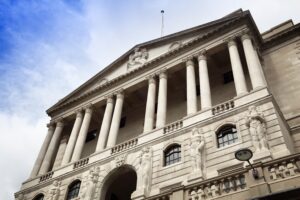
The Bank of England is anticipated to keep interest rates steady at 5.25%, marking the sixth consecutive hold on Thursday.
This decision will come against the backdrop of persistently high inflation, which currently stands at 3.2%, exceeding the Bank’s 2% target.
Alongside the interest rate announcement, the Bank will unveil its latest economic forecast, shedding light on future inflation trends and the trajectory of the UK economy. The release of this report is particularly significant amid ongoing discussions surrounding economic growth, with both major political parties outlining their strategies to drive recovery and secure votes ahead of the forthcoming general election.
Prime Minister Rishi Sunak has expressed optimism about the economy’s rebound in 2024, characterizing it as a pivotal year for recovery. However, households continue to face financial pressures despite assertions of a turnaround.
While economists widely anticipate the Bank to maintain current interest rates, many expect a potential rate cut in the summer. The Bank initially raised interest rates to curb inflationary pressures resulting from increased consumer demand following the relaxation of Covid-related restrictions. However, heightened energy and food prices, exacerbated by geopolitical tensions such as Russia’s invasion of Ukraine, contributed to inflation peaking at 11.1% in October 2022, its highest level in four decades.
The Bank’s base interest rate influences rates set by commercial banks and lenders, impacting borrowing costs for mortgages and other loans. Consequently, borrowers face higher repayment obligations, while savers benefit from increased returns on their savings.
Laith Khalaf, head of investment analysis at AJ Bell, cautioned against premature rate cuts, citing the cautious stance of the US Federal Reserve on interest rates. While speculation persists regarding the timing of rate cuts, investors are leaning towards a potential reduction in August.
Governor Andrew Bailey has expressed cautious optimism regarding rate cuts, suggesting that achieving the 2% inflation target may not be a prerequisite for monetary easing, but rather policymakers must be convinced of its attainment. Despite economic challenges, policymakers believe that the recent recession may have already ended, with official data on first-quarter economic performance expected to provide further clarity on the UK’s economic trajectory.
Read more:
Bank of England Expected to Maintain Interest Rates Amid Economic Uncertainty





